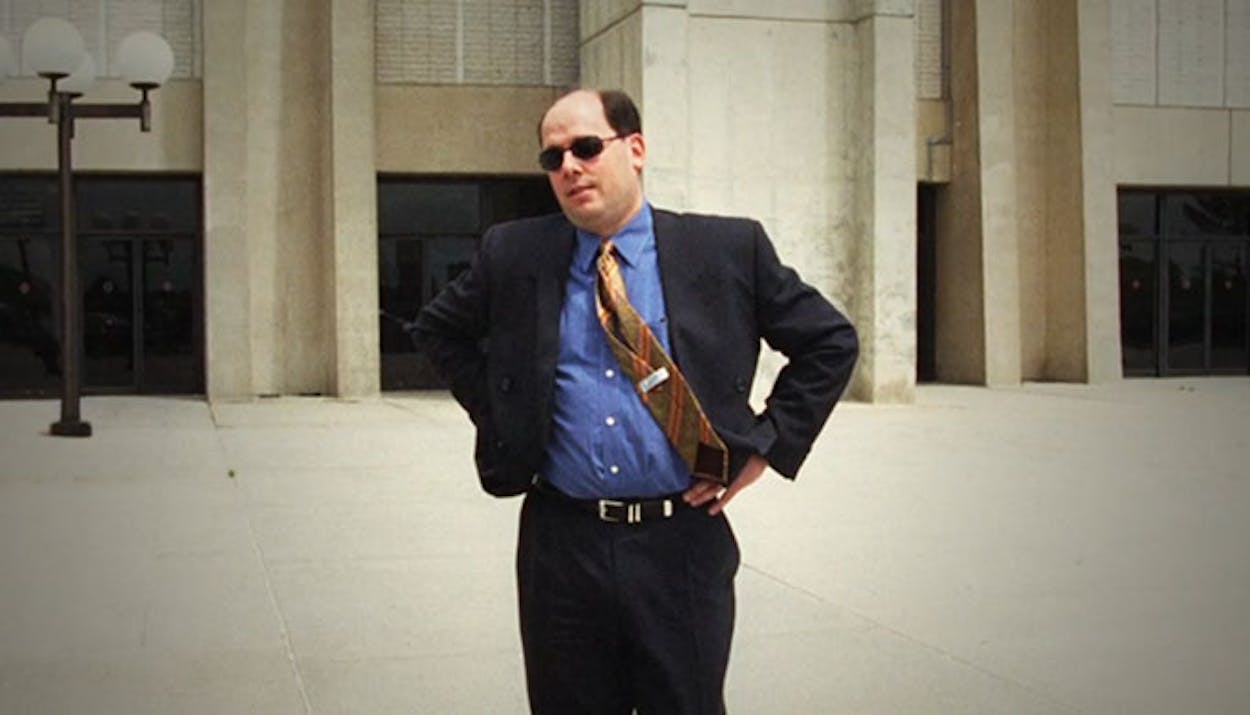In 1996, Dallas businessman John Spano bought the National Hockey League’s New York Islanders for $165 million. He owned 10 different companies and employed 6,000 people. He also received a sizable inheritance from a distant relative overseas (who may or may not have been an Italian mobster).
There was one problem: John Spano had less than $100,000 in his bank account. His entire story was a lie.
Earlier this week, ESPN aired a new documentary in its “30 for 30” series called Big Shot, about Spano’s bid to buy the Islanders. The film, directed by Entourage star and Leonardo DiCaprio pal Kevin Connolly, shows how Spano somehow fooled the world into believing he was worth over $100 million.
How exactly does a man with no money buy a hockey team? It’s actually pretty simple: He gets a loan. Spano walked into Fleet Bank in Boston, produced a document saying he had hundreds of millions of dollars in offshore accounts, and they gave him $80 million. In the documentary, Spano says it was harder to get his $12,000 car loan than the loan to buy the Islanders.
But $80 million still left him $85 million short. The film portrays Spano’s feeble attempts to pay off the other half of the team. When he owed the former owners $5 million, he would wire $5,000 instead, and claim a technological error by the bank was at fault for the missing zeroes. Finally, when he missed the deadline for a $17 million payment, the house of cards fell apart, and he relinquished control of the Islanders.
The film skips over several shady dealings Spano made in Texas prior to his purchase of the Islanders, though they did not become well-known until the aftermath. In 1997, Holly Mullen of the Dallas Observer traced the history of Spano’s Texas ventures.
After getting married and moving to Dallas in 1992, Spano started his own company, known as the Bison Group. The company, which leased equipment, had 22 employees and was worth $3 million by 1995 (Spano told people it was worth 33 times more than that).
In the early 1990s, he met Dallas businessman Robert Innamorati, who introduced Spano to Norman Green, then the Dallas Stars owner, and Hall of Fame Dallas Cowboys quarterback Roger Staubach. In the film, Spano also claims to have been friends with Jerry Jones.
In 1995, Green began the process of selling the Stars, and Spano began the dress rehearsal for his Islanders purchase. Producing the same fake documents he would later use to buy the Islanders, Spano offered to buy 50% of the team for $42 million.
“The quiet transplant from New York had appeared almost out of nowhere in 1995 with his offer to buy half of the Stars,” wrote Mullen, though team president Jim Lites found it odd that Spano’s $2.5 million University Park home had only “a few sticks of furniture.”
Nevertheless, the deal was publicly announced. Then Spano couldn’t come up with the funds to close the deal, and began to second-guess specifics of the contract and team operations, apparently as a delaying tactic. Green pulled the plug, and sold the Stars to Tom Hicks.
In July of 1996, Dallas law firm Hughes and Luce sued Spano for $250,000 for failing to pay them for their help in his pursuit to buy the Stars. And yet, less than six months after Hughes and Luce filed that lawsuit, Spano purchased the Islanders.
As the $17 million deadline approached, Spano crafted a new scheme to get out of the mess. He tried to rush an agreement on building a new arena for the team, and began courting private investors who would buy a percentage of the project (which Spano would then use to pay off the Islanders). The investors he reached out to included Jim Leslie, then the president of the Staubach Company.
In 2000, Spano pled guilty to fraud and other charges. The judge sentenced him to six years in prison and ordered him to pay $12 million in restitution to the Islanders, Roger Staubach, and hockey legend Mario Lemieux (whom he had scammed in an unrelated scheme). He was released in August 2004, but apparently old habits die hard, as he was arrested again the next year for mail fraud. He got out of prison for good in 2009.
Spano has been mixing it up with viewers of the film on Twitter. For long-suffering Islanders fans, he remains a controversial yet mythic figure, as Richard Sandomir of the New York Times discovered.
Said one, Steve Ellers: “Among many fans, myself included, I felt: ‘Can you believe he almost pulled that off?’ It’s almost a Walter Mitty kind of thing.”
In the aftermath of this debacle, the NHL decided to vet ownership candidates through the professional services firm Ernst and Young, as well as a New York law firm. And of course, banks never had to worry about issuing loans to people who couldn’t afford them ever again.






